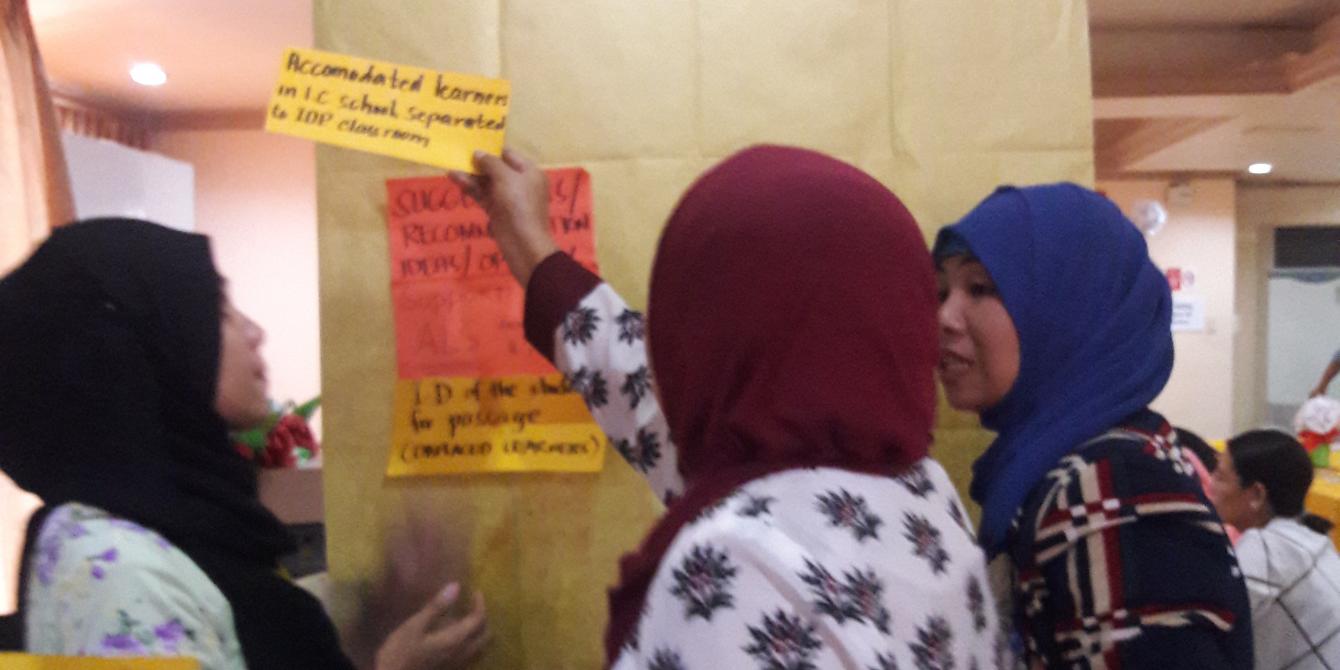
Women write their visions for better recovery of the educational institutions of Marawi
Moro women rise above difficult choices
May 26 was the day Farhana* didn't have the slightest hint of a choice. As she faced a band of militants who didn't budge as they aimed their firearms at her unless she leaves her house, she saw soldiers on the other end of the road pressing her to run towards them.
Caught in between two adversaries, she thought of her six children in tow. She was ready to die for them, but the children needed to live. She opted to run towards the government troops.
Upon reaching the soldiers, she was told casually to go to the provincial capitol. Barely catching her breath, she hurried again. From that day on, she knew that her life has changed.
Since the May 23 siege and clashes between the militants and the Army continue in Marawi City to this day, Farhana strived to put a semblance of normalcy not only into her life and that of her family but to the hundreds of Maranao families who were displaced by the conflict.
"In a situation where one group threatens you and another cannot help you, you only have yourself to turn to. That, to me, is still an option, no matter how painful it is," she told an interview during a gathering of CSOs supporting the recovery efforts of the Marawi crisis.
In the CSO meeting, Farhana took part in the visioning on how to rebuild Marawi from the point of view of its residents, recognizing the need to put in cultural sensitivities and local nuances.
Farhana belongs to an advocacy organization actively pushing for peace in the Bangsamoro region. When the May 23 Marawi siege happened, the advocacy was amplified with the call to support displaced residents.
"We regrouped and held meetings round-the-clock. We were all displaced so we should help each other," she said. She and her children are staying in her sister's house. She thought of persons who are not as fortunate, so her group pleaded to households to have room for these individuals and their families.
In a few psychosocial sessions with adult and younger women who have suffered the same ordeal of running for their lives, Farhana felt strengthened by the sharing of experiences. "Most of us did not have choices but to run," she said. "It was the most difficult thing to do – to run away from the home you cherished, the city you loved."
With her life altered, what matters now is that she can think of her children again. Never mind if it does not have any assurance of whether they can go to back to school or if they can have a new place to ease the burden off her sister for accommodating them.
"It’s a matter of choosing again even if in reality there are really not that much options to choose from," she said. "We still have hope so probably this will help."
*Real name withheld to protect her and her family.


 Follow us on Facebook
Follow us on Facebook Instagram
Instagram Follow us on Twitter
Follow us on Twitter LinkedIn
LinkedIn